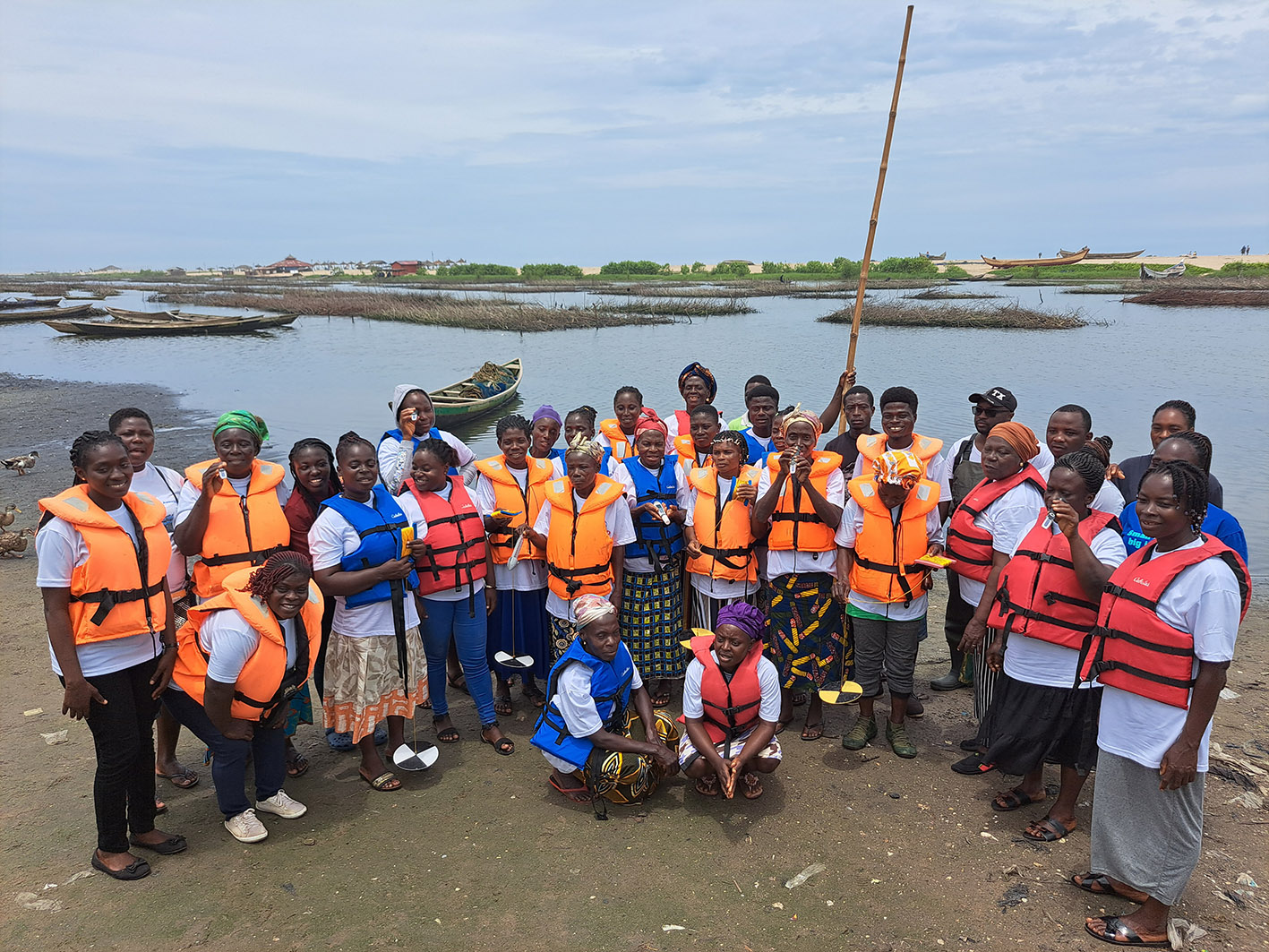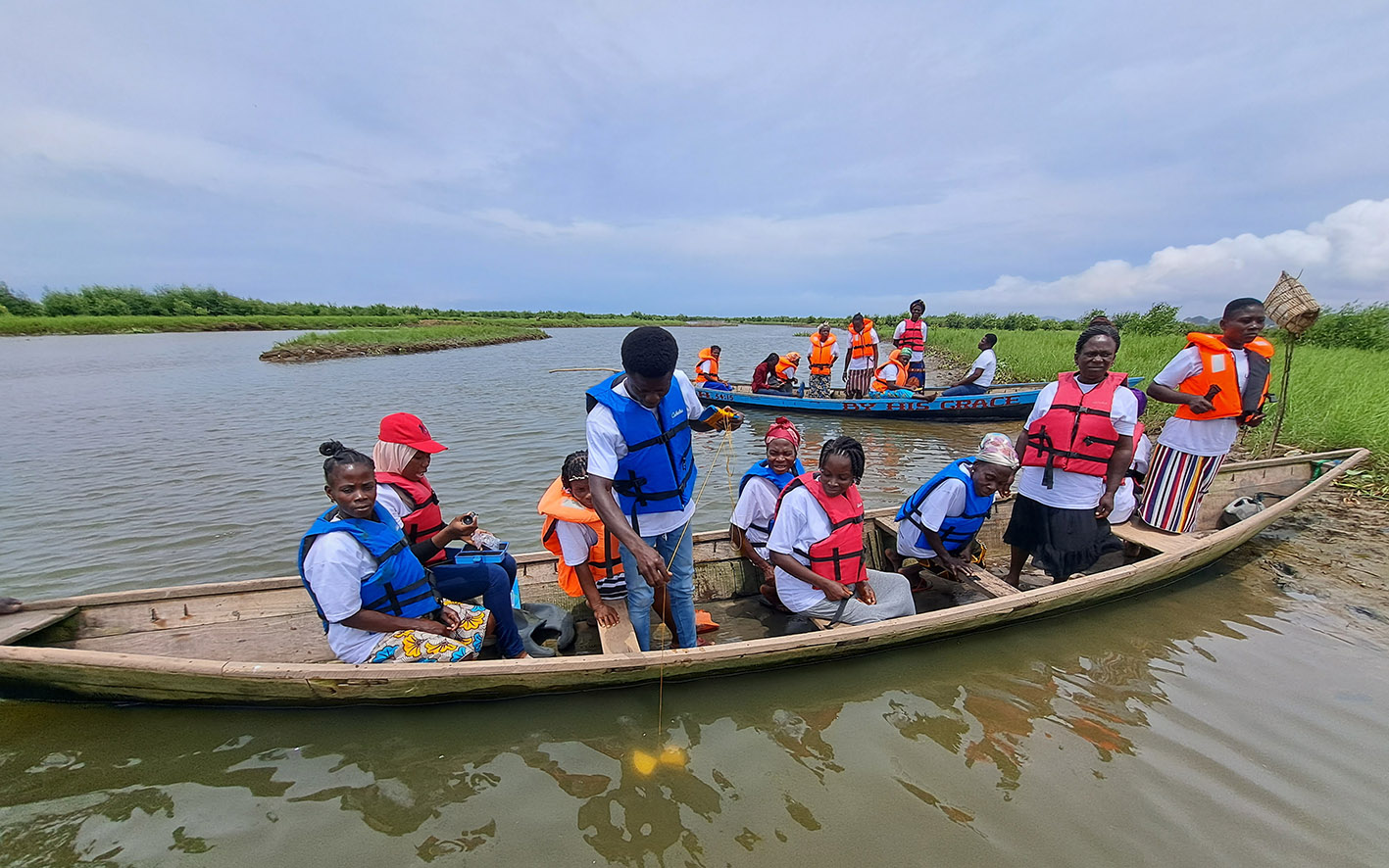Country
Profiles
Country
Networks
Country
Associations
- Date
Scaling up oyster co-management: NOHA learns from DOPA in their first peer-to-peer exchange visit
By WA Shellfish Hub
A three-day study tour facilitated by the WA Shellfish Hub and Development Action Association (DAA) was organised for selected members of the Narkwa Oyster Harvesters Association (NOHA) to visit their sister association, Densu Oyster Pickers Association (DOPA) for peer-learning and networking.
Such study tours are building the capacity of NOHA members towards oyster fishery co-management in Ekumfi-Narkwa. An expert was engaged to train NOHA members on leadership and advocacy skills. The training focused on developing leadership skills and knowledge of oyster resource management and ecological stewardship practices.
Sessions included lectures, group discussions and interactive learning exercises. NOHA members were equipped with a deeper understanding of oyster resource management, including the importance of sustainable harvesting practices, habitat conservation, and the ecological significance of oyster populations on surrounding ecosystems.
 Image: NOHA and DAA members in a group photograph during the peer learning at Densu, Accra.
Image: NOHA and DAA members in a group photograph during the peer learning at Densu, Accra.
They learned about the potential consequences of over-harvesting, pollution and habitat degradation. They also gained insights into their role as ecological stewards and the impact of their activities on the overall ecosystem. The training encouraged members to engage in conversation efforts and actively advocate for environmental protection.
The acquired knowledge and skills have exposed NOHA members to ways to address challenges, engage in ecological stewardship and contribute to the long-term ecological health and sustainability of the Narkwa shellfishery. In addition to the leadership for advocacy training, representatives of DOPA provided basic orientation for the NOHA members on oyster biology, ecology, and water quality monitoring.
Field demonstration of water quality monitoring of parameters such as temperature, dissolved oxygen, turbidity and pH was carried out at Densu. The UCC project team will follow up with further training for NOHA on water quality, oyster biology and ecology in the project's second year, after which the equipment will be handed over to NOHA for participatory data collection and monitoring.

